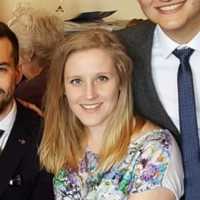The new junior doctor's roadmap: a reflection
Think about it. One moment, you're lying on a beach, enjoying the most glorious and successful summer of your life. Cocktail in hand, you don't have a care in the world. The next, you're curled up under a broken desk in some forgotten corner of a tumbled-down district general hospital, with a bleep shrieking at you and the thumping in your head shrieking even louder. What drug am I supposed to give Mabel in bay 3? What is the half life of diazepam? When is the next flight back to the beach? This is a transition that all junior doctors have to make - from apparent bliss one moment to responsibility the next. How do they cope? Laura Jones reflects on how she managed...
By the end of my final year of medical school I was sure I was ready to be a doctor. I had read all the books, taken what seemed like a million histories and my examinations were so streamlined they resembled a kind of awkwardly beautiful dance. I had spent weeks on the wards, what seemed like years in the library, living and breathing medicine. Best of all, I loved it! Results day came, I passed and celebrated, I graduated, I celebrated and then I celebrated some more. I was excited!
The first day of work came and I could feel it in my bones: I knew I was ready.
By day 2 I knew my bones had lied to me. I was not ready. I had no idea how to look after 15 patients, all at once. Being a 'good medical student' had not prepared me for the reality of being a junior doctor. As I student I had learned tackle one problem at a time, one patient at a time.
Yes, as a student I had spent days on the wards, but this was always just popping in for an hour and then off to teaching, or a revision group. I was always given the patient with a good history, not the delirious lady who can't tell you where they are, never mind why they are there. Most importantly, as a student I had never taken responsibility for a patient or had to make decisions about their care. I never got to know my patients, chatted to them, found out about their lives, or really met their families. Now I can stand in the middle of a bay and rotate like a spinning top, telling you about every patient’s living circumstances, name their 8 grandchildren and their neighbour’s dog. As long as I’ve had my coffee that morning, that is.
So, let’s zip back to day 2. I was lost. I had been on wards before, but something was different this time. I had responsibility: I was a doctor with patients, my own patients. As I got to know my patients and their personalities, I found it interesting researching their conditions, working out the management plans for them. I wanted to do the best I could for them. To figure this out, I needed to know them: what they enjoyed, what were their problems, what made them happy and what made them sad.
The biggest lesson I have ever learned has been when I have put the books down and been given a little responsibility, given the chance to care and make a difference.
So, a few months in, and everything seems a little less chaotic now. I’ve found my way out of the confusing maze I was in, and I feel like a better doctor for it. It was an important journey and one I’m glad I made. If you’re a medical student and you’re reading this: remember that it’s ok to feel lost – it’s all part of how you grow.
So, you new final years better watch out! Soon, you’ll be working hard, looking after your own patients, making decisions, getting to know the team and having some responsibility. If you get lost, don’t worry: I’ll be looking over your shoulder of course! Now what was Doris’ neighbour’s dog called…




